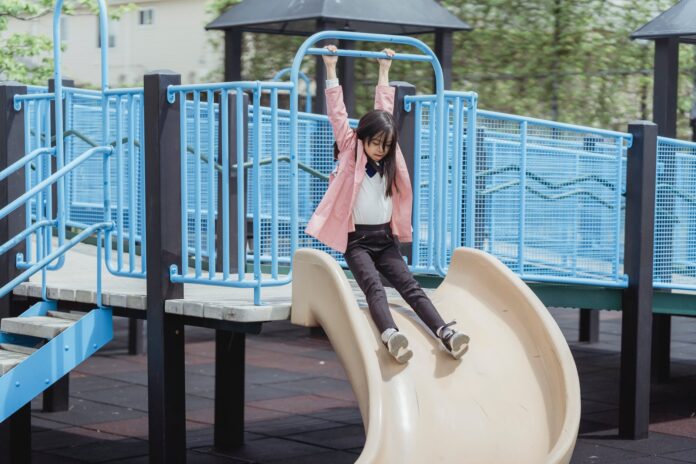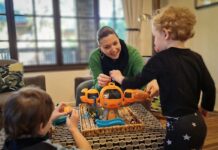As a child, the allure of the playground is unparalleled. The swings, the rides, the hustle-bustle of other children is so attractive not only because of the prospect of a fun-filled time but also because it is intellectually and emotionally stimulating. As much as educational games are important for the child’s learning and development, the role of physical activity and playgrounds cannot be avoided.
There are many small factors that come into play when children engage with other kids their age on the playground. A sense of teamwork, compassion, and empathy are developed on the playground. There are many reasons why playgrounds are the best for the creative development and learning of children. Here are some of them:
Away from the Static Screens
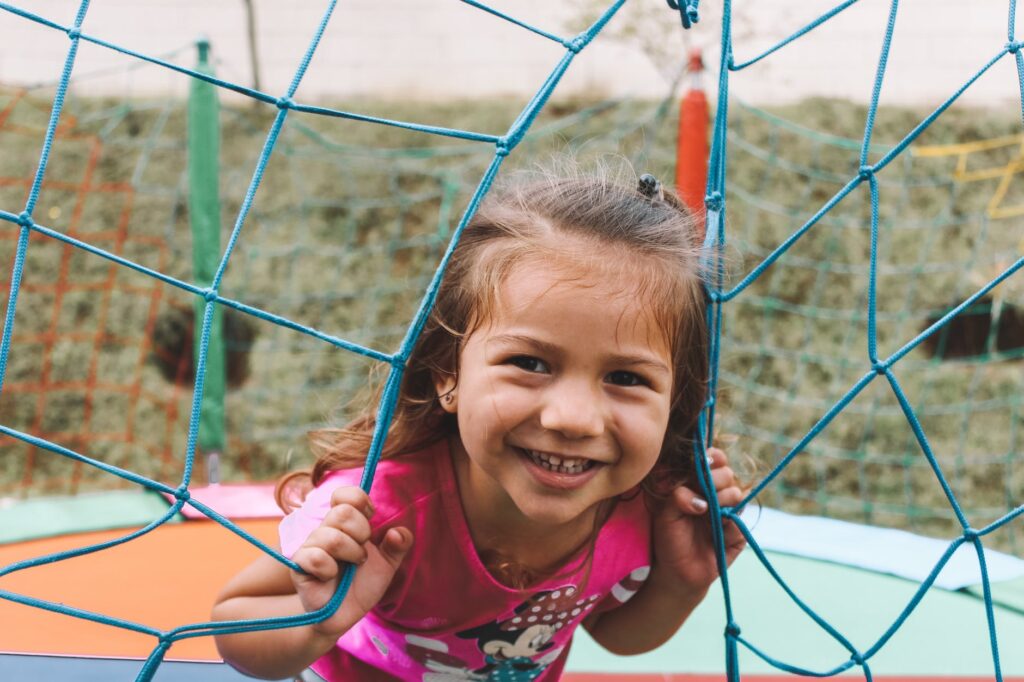
As much as adults are worried about reducing their screen time, now they have to plan a routine for their children too. An unhealthy addiction to phone or tablet screens is something children do not ever need.
Especially when alternative options like playgrounds are important, screens can adversely impact the eyesight of young kids. They can increase their dependence on phones which will make it harder for them to socialize and communicate later on. Playgrounds facilitate activity and engagement with other children, making them more active and independent.
Physical Advantages of Playgrounds
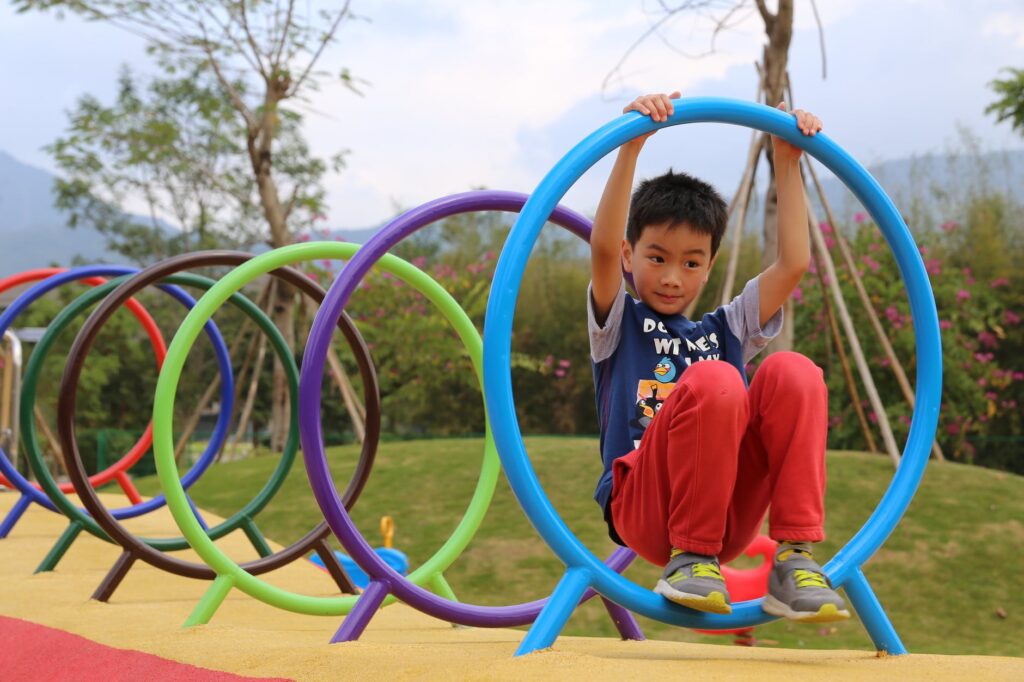
As you can learn on Moduplay, the layout of playgrounds is designed to facilitate physical activity and help children with their motor skills balance. There are several physical advantages that will help your child if they play in the playground:
- Better Motor Skills: Younger children will learn to stay balanced on their feet and coordinate their motor functions once they see other children do it.
- Manage their Weight: Sitting inside can increase the chances of obesity in kids. Playing, running around, jumping, and using rides will help children stay in the recommended bracket of weight.
- Helps with Hunger and Sleep: If a child is not being forthcoming with eating food, then the physical activity can help improve their hunger and hence their acceptance of food. Being tired at the playground will also aid in getting a deeper night’s sleep. Night terrors and other interruptions during the night will not be a worry if the child is physically exhausted.
- Healthier Immune Systems: Playing outside in an uncontrolled environment makes kids’ immune systems familiar with the weather and the common bacteria so that their bodies can battle changes in temperature and common colds effectively without making them sick.
Social Advantages of Playgrounds
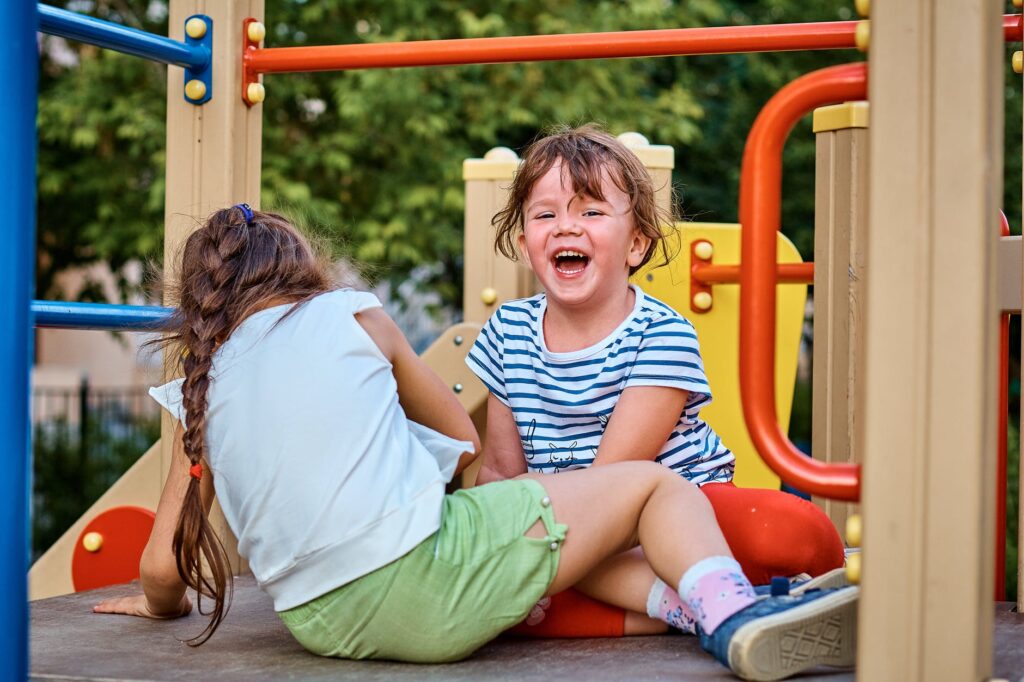
There are numerous ways in which playground play helps kids become responsible members of the community. The engagement opportunities are needles, and so are the lessons. Here is a list:
- Overcoming Social Anxiety: Many kids might feel uncomfortable in social situations, especially if they have been homeschooled. Playing with other kids in the playground helps them socialize and understand the behaviors of their peers.
- Engaging and Cooperating: Kids will learn to be more cooperative when they are allowed to engage with others of the same age. It helps kids work together and learn the foundations of important skills like teamwork.
- Listening and Acting: When to listen and when to act is a quality many adults need to learn. Children get a chance to start early in playgrounds. They learn to distinguish between listening and replying. Listening also helps them build strong interpersonal relationships early on.
- Independence: Along with teamwork, playing with others shapes their personality and makes children more equipped to make their own decisions. They will be able to learn independence which is something they cannot learn at home, where they have always been dependent on their parents.
Creative Advantages of Playgrounds
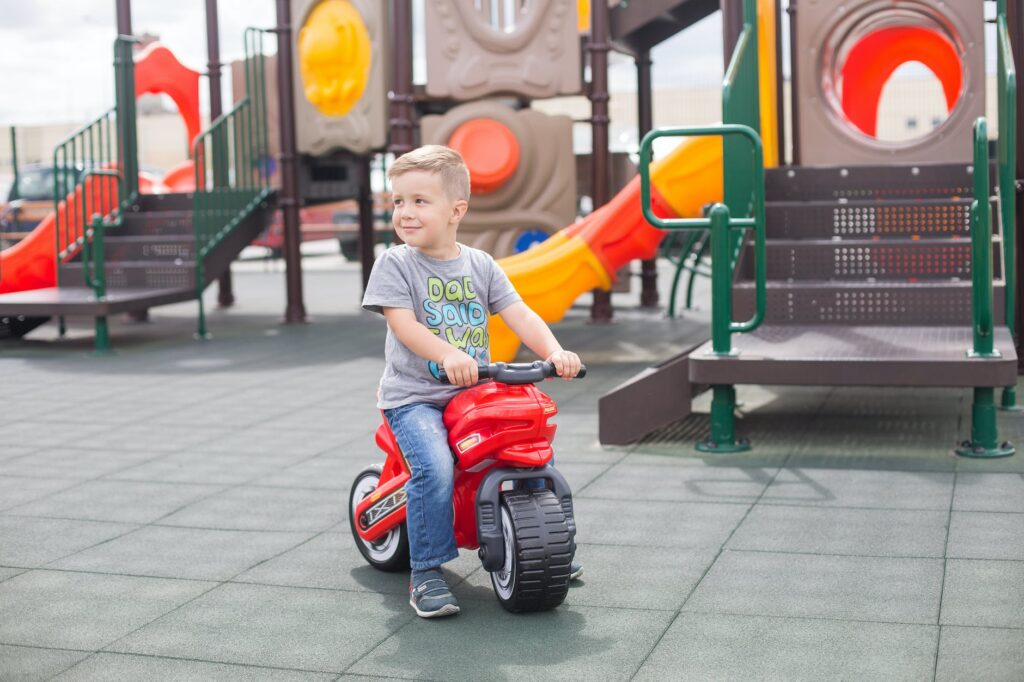
The way our minds work is shaped by the stimulus we were exposed to when we were kids. Children can develop their creative thinking skills by playing with other kids and utilizing their time at the playground. Here is how:
- Leadership Skills Improved: Children respond well to a stimulus when they are interacting with others. If your child is a born leader, they might step up to the opportunity given to them.
- Critical Thinking Skills Improved: Making split-second decisions are sometimes very important. Playing in tandem with other children will help children develop their critical thinking skills, which will also help them improve their empathy and cooperation with each other. It is critical thinking which later develops into problem-solving skills.
- Better Attention Spans: Have you ever wondered why your child’s attention keeps wavering when they are studying and trying to learn? It is simply because they have so much nervous energy and need to divert their attention so that they can focus on one thing at a time. Playing a game requires concentration and helps children retain their attention and focus for a longer duration. Forming this habit will help them in their studies as well.
Emotional Advantages of Playgrounds
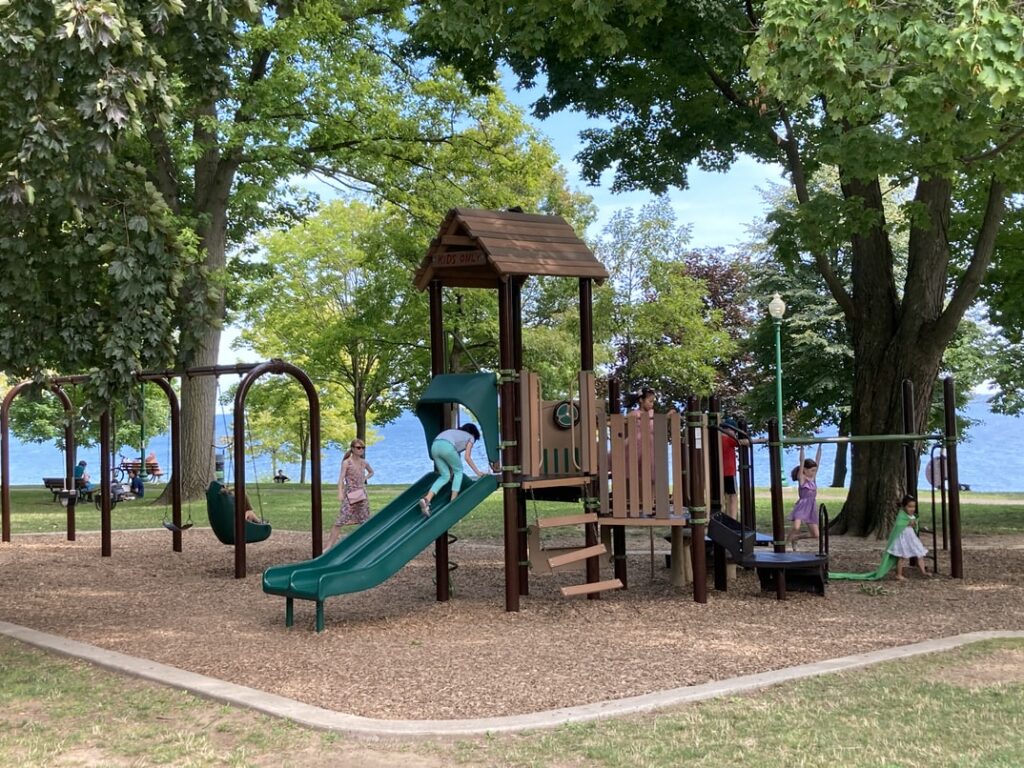
Playgrounds help children develop their emotional responses and make them more attuned to other people’s feelings and responses. Here is how children can emotionally benefit from the play:
- Helps them with their confidence: Children can boost their confidence if they can voice their thoughts in social situations. If they feel that they are being heard, it can significantly boost their self-esteem and the way they view themselves.
- Make them quick on their feet: There is only so much children can do when they are playing alone. Imagination allows for boundless ideas but can also prove to be limiting, especially when compared to playgrounds. Children will learn to be more spontaneous when they are playing in a group. Spontaneity will help children develop conversational skills and help them become more self-reliant.
The Takeaway
Children will learn so much wherever they are put and whenever they get the chance. But the best learning happens when children do not even realize that they are being taught. Playgrounds work wonders for children’s emotional, social, and physical well-being. Creative learning and development happen in playgrounds in a way that cannot be mimicked elsewhere.

